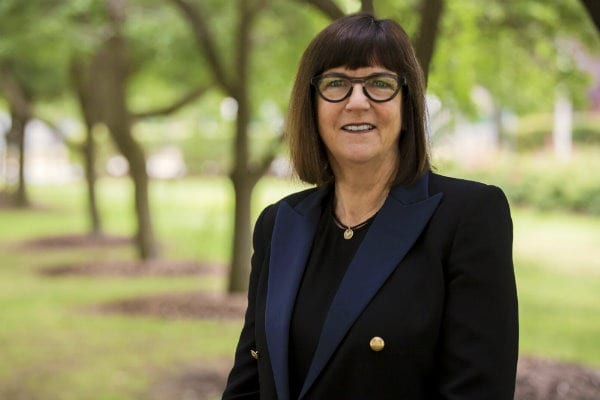It was met by silence and then criticism.
“That’s changed!” the CEO of Sport Australia tells Women’s Agenda.
At the end of 2016 Kate Palmer was announced as the first female appointed to run Sport Australia – then called the Australian Sports Commission – in its 31 year history.
She began in the role in early 2017 after a highly successful decade-long reign at Netball Australia where she oversaw significant revenue growth and negotiated a landmark pay deal for players. The role of women in sport – as players, coaches, administrators and spectators – was a key focus for the peak body and for Palmer herself who says the current interest in women’s sport has ‘lifted her spirits’.
“It’s been nothing short of a revolution really which is exciting,” Palmer says. “It hasn’t come out of nowhere though, it’s been building for a number of years.”
Palmer describes the introduction of the AFLW as a tipping point.
“It didn’t change the world but it was the point where it became very real and created some competitive tension between some of the big sports,” she says. “That competitive edge is pretty exciting because it lifts all boats.”
Even still Palmer says the road ahead will be long.
“The gap is so big it’s hard to even imagine closing it,” she says. “I want all sports with females playing to be resilient around the knock backs. The commercial support & broadcast support will be a slow burn but we need to persist because it will happen. The market is ready for this – we know that. But I know from my time with netball that you make ground, and then get pushed back.”
Sport is still a place where women aren’t made to feel comfortable at all times.
“That needs to change and if any body can do that it’s this one.”
Palmer grew up in country Victoria, in Shepparton, in a very sporting family. “We played winter and summer sport and that community feel in a country town was really important to me,” she says. “I was a 12 year old when I first volunteered and I developed a passion for sport and its ability to influence community outcomes and outcomes for people.”
Alongside playing netball for Victoria Palmer did an Honours degree in sport science at RMIT and then completed a Masters of Sport Management at Deakin University.
She describes herself as a generalist and says there aren’t many parts of sports she hasn’t been involved in.
“This job is a dream come true for me because the breadth and depth of issues I deal with. Actually being able to be involved with every sport in this country is wonderful,” she says. “Because I had a passion for netball I might have stayed too long but it gave me a good grounding. Because it had so few resources comparatively it helped me to achieve a lot with very little.”
Boosting the number of women in leadership roles in sport is a priority.
“I have a clear ambition around increasing the number of female CEOs in national sporting organisations because we need more women in positions of influence and power,” she says.
Sport Australia has recently launched its 2019 Women Leaders in Sport initiative, a grant and leadership program designed to encourage and foster women working in all facets of sport, which Palmer hopes will lift the numbers of female leaders and create environments where they can be successful. There are also there are plans for an executive-level leadership program.
Palmer’s interest in increasing engaging and involvement in sport – from all Australians – stems from her own passion. “I want all Australians, and particularly women, to be actively involved in sport and physical activity.”


